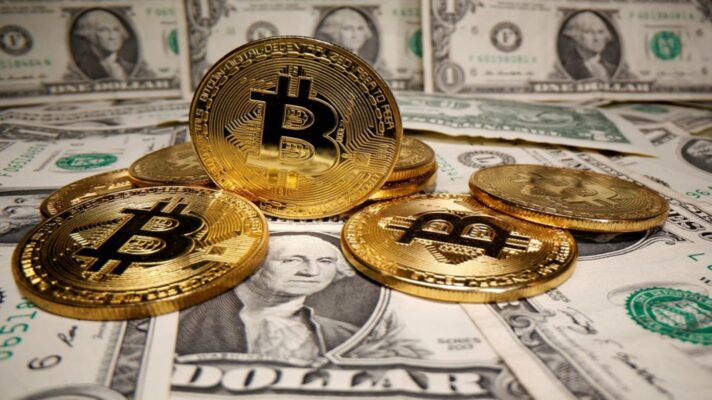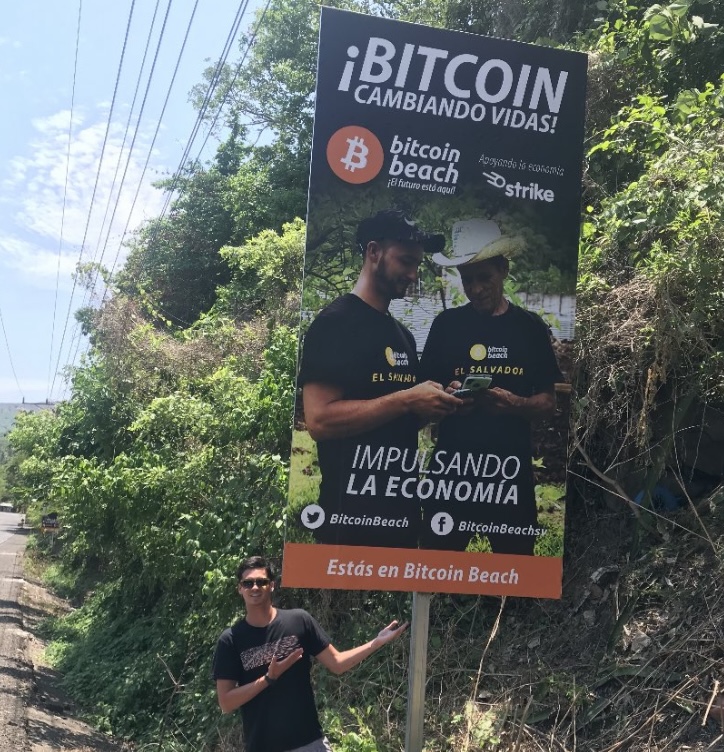
Here’s what to know about El Salvador’s move to accept Bitcoin as legal tender.
This week El Salvador became the first country in the world to make Bitcoin legal tender, prompting a flurry of speculation about how the smallest Central American nation, which ranks among the region’s poorest, will fare using the volatile cryptocurrency.
Yet for one small Salvadoran beach town, crypto is already part of daily life. Businesses in El Zonte have been using it since 2019 after the launch of “Bitcoin Beach”, a programme whose mission is to build a “sustainable Bitcoin economic ecosystem on the coast of El Salvador”.
“There are more than 50 establishments — from mobile-phone-minute stands to vegetable and fruit vendors, shops, hardware stores, restaurants and hotels — that use Bitcoin for daily transactions,” said Carlos Enrique Ortiz Novoa, who started accepting Bitcoin at Olas Permanentes, his hotel, restaurant and surf camp, in March 2020.
Now, the rest of the country is getting in on El Zonte’s Bitcoin experiment after the country’s legislative assembly passed a law spurred by 39-year-old Salvadoran President Nayib Bukele requiring businesses to accept it as payment for goods and services alongside the United States dollar, which has been the country’s official currency since 2001.
Bukele, who was elected in 2019 from the centre-right Grand Alliance for National Unity party, has since festooned his Twitter account in crypto branding. His Twitter profile now features a photo of him with Bitcoin “laser eyes” and an ongoing thread about a project to mine Bitcoin using energy from one of El Salvador’s volcanos.
El Zonte’s early adopters share his excitement. Mike Peterson, Bitcoin Beach’s director, said the town’s pilot project was always aimed at demonstrating “the power of Bitcoin to uplift the poor and those who have been locked out of the traditional financial system”.
“We’ve seen the impact it can have on people’s lives,” Peterson told Al Jazeera. “The fact that the government has been watching that happen and is excited about it, not because it’s going to help the wealthy, but because it’s going to help the people on the bottom rung, we’re thrilled about that.”
But not everyone is celebrating. Ahead of a meeting between the International Monetary Fund (IMF) and Bukele on Thursday, the organisation’s spokesperson said the adoption of Bitcoin “raises a number of macroeconomic, financial and legal issues that require very careful analysis”. El Salvador is seeking an almost $1bn lifeline from the IMF.
Others have questioned Bukele’s timing: the announcement came the same week that US Vice President Kamala Harris was visiting other countries in the region, but not El Salvador. Historically a regional ally, the US has also been criticised for supporting the country’s right-wing regimes, including during a bloody civil war from 1979 to 1992 that pitted socialist rebels against the country’s entrenched elite known as the 14 families.
More recently, US-Salvadoran relations have cooled since the US criticised Bukele’s move to dismiss Supreme Court judges and the country’s attorney general as a power grab. And a US Department of State report in May included five Salvadoran officials with close ties to Bukele on its list of allegedly corrupt Central American politicians.
Bukele has also been moving closer to China. After the release of the corruption list, Bukele took to Twitter to praise a $500m public investment from China he said was “made without conditions”. Previously, he tweeted his thanks to “President Xi Jinping and the people of the People’s Republic of China” after receiving millions of doses of the country’s COVID-19 vaccines.
Yet because El Salvador uses the dollar as its currency, its monetary policy is wedded to the US’s even as relations falter. That could explain the motivation behind the Bitcoin move, said Johnathan Ordonez, an international consultant with Guatemala-based think-tank LAB-CA, the Central American Laboratory for Innovation and Public Policy.
“Many officials from the White House have shown their concern about the authoritarian ways in which President Bukele has ruled the country,” Ordonez told Al Jazeera. “I would argue — and this is my main thesis of the adoption of Bitcoin in El Salvador — that President Bukele wants to avoid any sanctions or repercussions from the US through El Salvador’s financial system.”
“I think that Bitcoin will be a risky alternative to alleviate the eventual pressure Bukele could get from Washington,” he added.
Political motivations aren’t the only question. While Ortiz called Bukele’s decision “a great step for the country” and says using Bitcoin as a means of payment has been “excellent and practical” in El Zonte, he also recognises the pitfalls.
“For those who want to invest, it has a great risk due to the fluctuation of the currency,” Ortiz said. It’s those fluctuations that sceptics say will make Bitcoin impractical for day-to-day use — especially in a country as poor as El Salvador.
Nearly a third of the country lives on $5.50 per day or less, according to the World Bank, and 8.5 percent live in extreme poverty, or on less than $3.20 per day. Wild swings in the value of Bitcoin could make a real difference on that scale.
And the swings have been boom and bust this year. After hitting an all-time high of $64,899 on April 13 — pumped up by an investment from Tesla and hype from its CEO, Elon Musk — Bitcoin’s price plummeted to $30,000 on May 19 after Musk criticised the cryptocurrency’s energy use.
 In El Zonte, El Salvador, even small shops like this one accept Bitcoin thanks to a programme known as ‘Bitcoin Beach’
In El Zonte, El Salvador, even small shops like this one accept Bitcoin thanks to a programme known as ‘Bitcoin Beach’
Bitcoin is now hovering near $37,000, but headwinds are building. The backlash over its carbon footprint has been severe, and talk of tighter government regulation continues to gain momentum. In the meantime, China and other countries are cracking down on the cryptocurrency, while Bitcoin’s credibility as a currency beyond government control was thrown into doubt after US law enforcement recovered part of a Bitcoin ransom paid by a pipeline company.
But Bitcoin proponents still see an upside for developing nations forced to live in a global financial system dominated by big banks. Peterson believes the decentralised nature of Bitcoin, which cuts out banks by allowing peer-to-peer transactions, has the potential to empower Salvadorans who are unbanked and slash the fees associated with receiving money from abroad.
Remittances make up 23 percent of El Salvador’s gross domestic product, and about 360,000 households rely on them, according to the country’s central bank. But traditional transfer companies charge fees — to send $200 from the US to El Salvador, for example, fees range from $2.99 to $12.99, according to the World Bank’s remittance price database.
“You have some of the poorest people in the world paying some of the highest fees to access the financial system, and so Bitcoin totally fixes that,” Peterson said. “They can receive remittances and transfers from family members virtually free.”
Peterson said he started Bitcoin Beach after receiving a “sizable” donation from an anonymous Bitcoin holder who told him that “if we could figure out how to use Bitcoin in real ways, he would be willing to invest in some of the projects we were doing with the youth there.”
Peterson and his wife own a food-service business in San Diego, California and run a Christian non-profit in El Salvador. They used that first donation to pay community volunteers in El Zonte.
 El Zonte has billed itself as a Bitcoin investor destination, with signs like this one that read ‘Bitcoin changing lives!’ and ‘You’re in Bitcoin Beach’
El Zonte has billed itself as a Bitcoin investor destination, with signs like this one that read ‘Bitcoin changing lives!’ and ‘You’re in Bitcoin Beach’
“We started using Bitcoin to pay the youth in the community that were involved in different projects like cleaning the river and cleaning the beaches,” Peterson said. “We now have 62 certified lifeguards that get paid in Bitcoin.”
From there, Bitcoin Beach helped educate the community about how to use it in daily life, creating its own lightning wallet people use on their mobile phones. The Bitcoin Beach wallet now has about 7,000 users, Peterson said, who make about 1,200 transactions per day.
The app has a map showing locations that accept Bitcoin in town and allows people to send money directly to each other via their usernames. Users can also create invoices that are scanned and paid with a QR code.
People in El Zonte also use the Strike app, which allows remittances to be sent from the US and received in either Bitcoin or US dollars, Peterson said. But while Bitcoin is more volatile, Peterson said he has heard from many Salvadorans that they prefer to keep their money in it over fiat currency because “it’s the first time they can actually invest in an asset”.
“Once people start using Bitcoin, they become savers just naturally without even thinking about it,” Peterson said. “People realise that it’s probably going to go up over time, and so they’re reluctant to part with it.”
As the rest of El Salvador embarks on the Bitcoin experiment, other questions remain, including how a country where drug trafficking and corruption are major issues will ensure transparency in the notoriously murky world of crypto.
And then there is the central question: can a tiny country that hasn’t controlled the value of its own currency since dollarisation 20 years ago find freedom in Bitcoin? Peterson thinks so. “This is a small Central American country,” he said, “and the people there are upending the world’s financial system, so keep an eye on them.”
